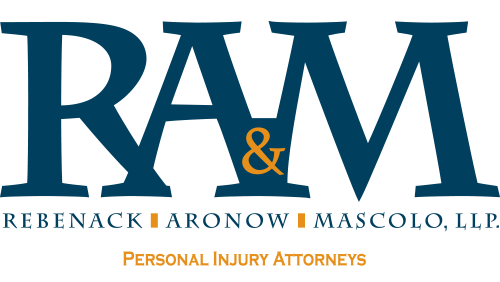Causes of a Semitruck Jackknife Accident and Its Dangers
Statistics from the Insurance Institute for Highway Safety (IIHS) indicate that over 4,100 individuals perished from truck accidents in 2018, and of these deaths, 16 percent were the trucks’ occupants while 67 percent were passengers in small vehicles. Additionally, 15 percent of the deaths were either from motorcycle riders, pedestrians or bicycle riders. Most of those crashes were a result of a truck jackknife accident.
Jackknife Accidents in New Jersey
Most injuries and mortalities resulting from jackknifed semitruck collisions in New Jersey are associated with passenger vehicle occupants. The primary reason for this is the vulnerability of individuals driving small cars. Trucks weigh between 20 and 30 times the weight of small vehicles. Besides, trucks are tall and have significant ground clearance. Thus, this may lead to smaller cars sliding under the trucks during accidents.
Have you or your relative been involved in a tractor-trailer accident in New Jersey, and you intend to pursue legal redress for damages? If so, one of the critical aspects to consider is the type of tractor-trailer accident you got involved in while in New Jersey. Establishing the kind of accident that occurred is important when presenting your case for compensation through your trucking accident attorney. The majority of truck accidents are classified according to the truck’s angles when colliding with another vehicle.
What Is a Jackknife Truck Accident?
A jackknife crash happens when a massive 18-wheeled tractor-trailer’s wheels lock up. When the wheels lock, the trailer sways and creates a 90-degree angle with the truck. This is referred to as a jackknife accident as it resembles the curve a jackknife edge makes with its shaft. Big trucks consist of two main parts — the cab and the trailer. The cab section is where the engine gets fixed and the driver of the truck stays. The latter part attaches to the rear area of the cab. When this type of crash happens, the two parts of the truck slide in opposite directions. Therefore, when a truck trailer sways, it forms a jackknife-like, or “V,” shape. Jackknife tractor-trailer crashes are extremely dangerous and may lead to severe injuries and even cause death.
How Does a Jackknife Truck Accident Occur?

A jackknife crash happens when the truck’s trailer sways towards the edge, forming either a “V” or an “L” shape. In most cases, the truck’s cab wheels end up locking themselves when on a slippery highway. Often, this happens while the truck is on the move, causing the truck’s trailer to sway to the edge. In some cases, the jackknife crash occurs due to the truck’s sudden and forceful braking while it’s on the move. Such cases happen when the trucker realizes the need for abrupt braking, locking the cab’s wheels from moving. However, the truck’s trailer continues to move due to the truck’s momentum, thus swaying the trailer to the edges in a very hazardous way.
Why Jackknife Accidents Are Considered Extremely Dangerous
Trucks can have a total weight of up to 80,000 pounds when loaded to full capacity. With all that weight, if they get involved in any jackknife crash, it can be dangerous. Colliding with a tractor-trailer can be extremely hazardous since small cars can skid below and get crushed. A few of the individuals involved in these accidents get lucky and survive the ordeal. However, most of the survivors often sustain severe injuries or permanent incapacitation. A few of the injuries caused by a jackknife crash are neck and back damages, broken bones, internal organ injury, and traumatic brain injuries. Victims of a this type of crash can also suffer deep burns and spinal cord injury or paralysis.
For these reasons, jackknife truck crashes are the most dangerous truck accidents on most highways. These accidents usually cause severe destruction of property and create chaos on the roads. At times, roads can be closed for several hours due to jackknife crashes. A jackknife accident may lead to multivehicle collisions and occupy two or more highway lanes.
Above all, jackknife crashes can be catastrophic to the individuals involved. For instance, it can be deadly to the truck driver since the cab’s top may be cut off. Other passenger vehicle drivers get exposed to great danger because of the tractor-trailer’s size and height. When a truck is in motion and gets involved in a jackknife crash, it’s often doubtful that a passenger vehicle will evade it. Studies have shown that slightly more than half of all semitruck jackknife crash mortalities happen on undivided two-lane highways. Therefore, this implies that an oncoming passenger vehicle may crash into the swaying trailer face to face.
The Main Causes of Jackknife Tractor-Trailer Accidents on the Highways
- Overspeeding. On average, trucks weigh a total of 80,000 pounds. Given these conditions, if the trucker is driving at a high speed, a jackknife crash is bound to occur. Large trucks require about 40 percent additional time to stop after braking as compared to passenger vehicles. When overspeeding, if a need arises for sudden braking, the trailer can sway, causing a jackknife accident.
- Weather conditions. Most jackknife crashes take place when the highways are icy and slippery. Therefore, truckers should drive carefully and slow down when the weather conditions aren’t good. Failure to do so can lead to a jackknife crash, resulting in catastrophic injuries to the victims.
- Poor maintenance leading to mechanical problems. If a tractor-trailer’s braking system and tires aren’t properly maintained, the brakes can deteriorate, or the tires can burst. As such, the trucker can lose control, which can cause a jackknife crash to occur.
- Unsecured loads. A truck’s load should be adequately secured and distributed to give the truck balance. If a truck’s load is not well-balanced and distributed, it may move, causing the truck’s trailer to swing. Thus, due to instability, cargo can cause a jackknife accident.
- Driver fatigue. Most truck jackknife crashes occur when a trucker drives for extended hours without getting enough rest. If a trucker becomes sleepy while driving the truck, he or she may lose control and cause a jackknife accident.
What You Need to Do If You Get Injured in a Jackknife Truck Accident
Jackknife truck crashes are extremely dangerous compared to other accidents, and pursuing legal action can be complicated. As soon as the accident occurs, make sure to call 911 and file a police report. The police will record important details of the crash, secure the area, call medical help and take the witnesses’ statements.
You should then seek guidance from a professional trucking accident attorney immediately after the crash. At Rebenack, Aronow & Mascolo, LLP (RAM Law), we will handle all the legal matters of your compensation case while you recover. Given our years of experience as trucking accident attorneys, we guarantee that we will work towards you receiving fair compensation. Whether you sustained severe injuries or lost a loved one, we are committed to fighting for your compensation.
Depending on the level of your injuries, we can help you obtain compensation for various issues. For instance, you may receive compensation for your medical expenses, lost income, and the pain and suffering you have experienced. Anytime you are ready to take legal action to seek compensation, reach out to us, and we will guide you all the way.
We assist jackknife crash victims throughout New Jersey, and you can contact us by phone at (732) 394-1549 or fill out our online form to schedule a consultation.


